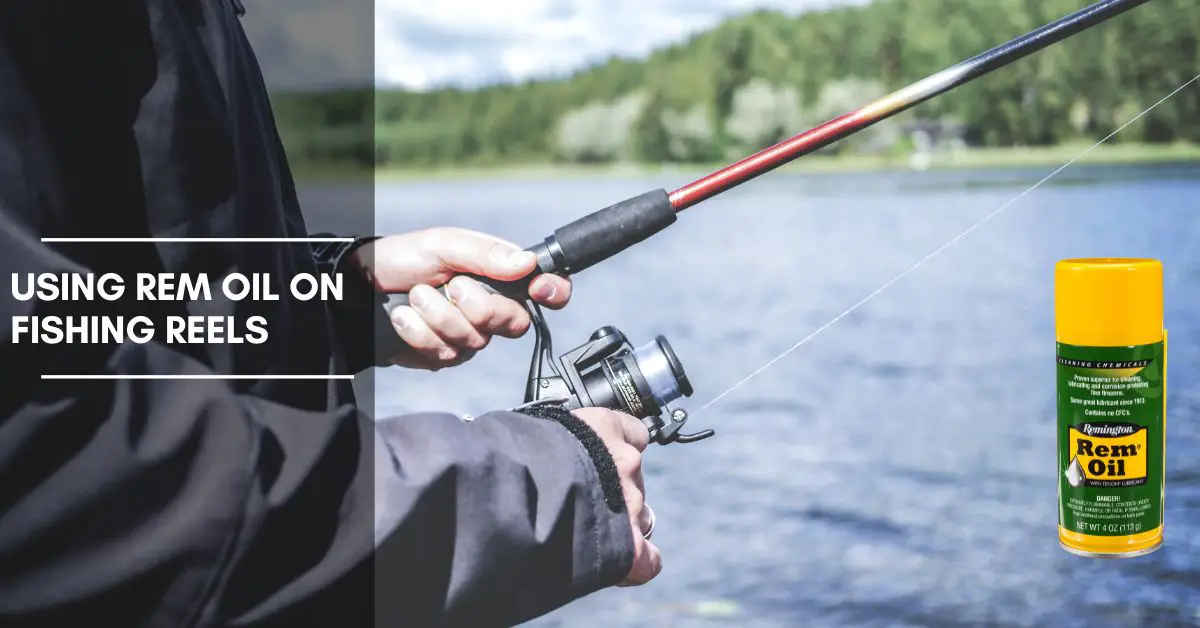Ever found yourself caught between a rock and a hard place when it comes to reel maintenance? Wondering if Using REM Oil on Fishing Reels: Is It a Good Idea? Well, you’ve just cast your line into the right spot. In this article, we’ll reel in the facts, debunk the myths, and help you make the catch of the day with well-maintained reels. So, let’s dive in and get to the bottom of this question.
Why Lubrication is the Catch of the Day?
A smooth sailing experience
No one wants to feel like they’re tugging on a rusty anchor when reeling in that prized catch. Proper lubrication helps your fishing reel perform smoothly and efficiently, making your fishing experience as seamless as a fish gliding through water.
Hook, line, and sinker: Prolonging reel life
Fishing gear doesn’t come cheap, and maintaining it is the key to a long and prosperous relationship with your trusty reel. Lubrication minimizes wear and tear, protecting your reel’s inner workings from the ravages of time, saltwater, and grit.
REM Oil – A Whale of an Option?
What is REM Oil?
REM Oil is a high-performance lubricant formulated with Teflon, a substance known for its exceptional friction-reducing properties. It’s commonly used on firearms and other precision instruments, but does that make it a good fit for fishing reels?
The case for REM Oil
- Teflon-infused: Teflon’s legendary ability to reduce friction makes REM Oil a potential lifesaver for your reel’s moving parts.
- Rust-resistant: This trusty lubricant forms a barrier against moisture, helping to keep the dreaded rust monster at bay.
- Non-gumming formula: Nobody likes a sticky situation, and REM Oil’s non-gumming formula means your reel won’t be bogged down with residue.
The flip side of the coin
- Not designed for fishing reels: While REM Oil has its perks, it’s important to remember that it wasn’t specifically designed for fishing reels. Dedicated reel lubricants might have the upper hand here.
- Expensive: Compared to other lubricants, REM Oil can be a bit of a budget-buster.
To REM or Not to REM? That Is the Question
A matter of personal preference
At the end of the day, whether or not to use REM Oil on your fishing reels comes down to personal preference. Some anglers swear by it, while others stick to the tried-and-true fishing reel lubricants. It’s your call!
Testing the waters
If you’re on the fence, consider trying REM Oil on a less-valuable reel to see how it performs. You never know – it might just become your go-to lubricant.
FAQs
Can I use REM Oil on all types of fishing reels?
- Though REM Oil is a versatile lubricant, it’s always a good idea to check your reel’s manufacturer guidelines for any specific recommendations or restrictions.
How often should I lubricate my fishing reel?
- It depends on how frequently you fish and the conditions you’re fishing in. As a rule of thumb, give your reel a good clean and lubrication every six months, or more often if you’re an avid angler or frequently fish in harsh conditions.
What’s the best way to apply REM Oil to my fishing reel?
- First, disassemble your reel according to the manufacturer’s instructions. Next, clean all the parts thoroughly to remove any dirt, grit, or old lubricant. Once everything is squeaky clean, apply a thin layer of REM Oil to the gears, bearings, and other moving parts. Reassemble your reel, and you’re good to go!
Are there alternatives to REM Oil for fishing reel lubrication?
- Absolutely! There are plenty of dedicated fishing reel lubricants on the market, including grease and oil options specifically designed for fishing reels. Research and experiment to find the one that works best for you and your gear.
Conclusion: Reeling in the Right Decision
In the grand scheme of things, using REM Oil on fishing reels might be a good idea for some anglers. Its Teflon-infused, rust-resistant, and non-gumming properties make it a tempting choice. However, it’s important to weigh the pros and cons before diving in headfirst. Consider testing the waters with a less-valuable reel, and don’t forget to explore other fishing reel-specific lubricants. Ultimately, the choice is yours – so reel in the right decision for your needs and keep your fishing gear in tip-top shape! Happy angling!

